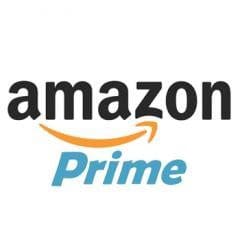 After 32 victories and $2,462,216 in earnings, the run is finally over. Of course, I am talking about James Holzhauer’s Jeopardy win streak, which ended earlier this week, about $60,000 shy of Ken Jennings’s record of $2,522,700 in a 74-game winning streak in 2004. And while the big loss was not much of a surprise based on leaked information, many people thought he may have thrown the round, considering that he bet just $1,399 in final jeopardy, a departure from his normally large Final Jeopardy bets. However, deeper analytics have shown that his nominal wager was actually his best chance at winning, given the totals of the other two contestants at the time. During his run, Holzhauer hit an amazing number of daily doubles as well as going 32 for 33 on Final Jeopardy. But, as they say, all good things must come to an end. At the same time, we say congratulations to Emma Boettcher. And now on to this week’s logistics news.
After 32 victories and $2,462,216 in earnings, the run is finally over. Of course, I am talking about James Holzhauer’s Jeopardy win streak, which ended earlier this week, about $60,000 shy of Ken Jennings’s record of $2,522,700 in a 74-game winning streak in 2004. And while the big loss was not much of a surprise based on leaked information, many people thought he may have thrown the round, considering that he bet just $1,399 in final jeopardy, a departure from his normally large Final Jeopardy bets. However, deeper analytics have shown that his nominal wager was actually his best chance at winning, given the totals of the other two contestants at the time. During his run, Holzhauer hit an amazing number of daily doubles as well as going 32 for 33 on Final Jeopardy. But, as they say, all good things must come to an end. At the same time, we say congratulations to Emma Boettcher. And now on to this week’s logistics news.
- FedEx to deliver 7 days a week
- Amazon starts one-day shipping for millions of products
- Blockchain news:
- US-China trade war news:
- Driverless delivery trucks could hit California roads by year’s end
- Air Canada Cargo to offer drone-delivery services
 As e-commerce (and the expectations from customers for fast, free, and reliable deliveries) grows, companies are making changes to their strategic initiatives to keep pace. This week, FedEx announced plans to deliver packages seven days a week starting in January of 2020. It was less than a year ago that the company expanded its delivery operations to six days a week, with seven-day service during the holiday season. The company is also taking back nearly 2 million daily deliveries to homes that are currently handled by the post office in a move it says will increase the efficiency of its own network. FedEx expects shipments of small parcels in the US to double by 2026. That could strain delivery networks, making seven-day service a viable solution.
As e-commerce (and the expectations from customers for fast, free, and reliable deliveries) grows, companies are making changes to their strategic initiatives to keep pace. This week, FedEx announced plans to deliver packages seven days a week starting in January of 2020. It was less than a year ago that the company expanded its delivery operations to six days a week, with seven-day service during the holiday season. The company is also taking back nearly 2 million daily deliveries to homes that are currently handled by the post office in a move it says will increase the efficiency of its own network. FedEx expects shipments of small parcels in the US to double by 2026. That could strain delivery networks, making seven-day service a viable solution.
 Amazon has expanded its next-day shipping service to Prime customers nationwide. The company announced that free next-day shipping is now available “coast-to-coast” for more than 10 million products. This was just the latest jab in its ongoing sparring match with Walmart. This announcement comes just a few weeks after Walmart announced that it was offering free next-day delivery shipping on about 200,000 products for shoppers in select cities. As other retailers have raced to catch up with Amazon’s shipping speed, the company keeps investing heavily in its logistics network to bring about faster shipping. Even with this announcement, however, it is not clear exactly what Amazon means by “coast-to-coast”; will all Prime members receive free next-day shipping on orders? Also, the 10 million products mentioned in the announcement are only a fraction of the more than 100 million items available for free two-day delivery to Prime members. For the new service, there is no minimum order threshold.
Amazon has expanded its next-day shipping service to Prime customers nationwide. The company announced that free next-day shipping is now available “coast-to-coast” for more than 10 million products. This was just the latest jab in its ongoing sparring match with Walmart. This announcement comes just a few weeks after Walmart announced that it was offering free next-day delivery shipping on about 200,000 products for shoppers in select cities. As other retailers have raced to catch up with Amazon’s shipping speed, the company keeps investing heavily in its logistics network to bring about faster shipping. Even with this announcement, however, it is not clear exactly what Amazon means by “coast-to-coast”; will all Prime members receive free next-day shipping on orders? Also, the 10 million products mentioned in the announcement are only a fraction of the more than 100 million items available for free two-day delivery to Prime members. For the new service, there is no minimum order threshold.
 As Steve Banker mentioned in an interview with me a few months ago, 2019 could be the “year of blockchain” for supply chain management. Many major brands are seeing this as well, especially as traceability becomes a bigger factor. Bridal and fine jewelry brand Brilliant Earth launched a tool on its e-commerce site to make it easy for shoppers to learn where the diamonds they are buying came from and where they’ve been, every step of the way. Brilliant Earth partnered with digital diamond registry company Everledger and Indian diamond manufacturing company Dharmanandan Diamonds to track the journey of the diamond. Currently, the brand has nearly 1,000 diamonds and colored gems uploaded to this online system. Consumers can go on the company’s website and browse specifically for blockchain-enabled diamonds.
As Steve Banker mentioned in an interview with me a few months ago, 2019 could be the “year of blockchain” for supply chain management. Many major brands are seeing this as well, especially as traceability becomes a bigger factor. Bridal and fine jewelry brand Brilliant Earth launched a tool on its e-commerce site to make it easy for shoppers to learn where the diamonds they are buying came from and where they’ve been, every step of the way. Brilliant Earth partnered with digital diamond registry company Everledger and Indian diamond manufacturing company Dharmanandan Diamonds to track the journey of the diamond. Currently, the brand has nearly 1,000 diamonds and colored gems uploaded to this online system. Consumers can go on the company’s website and browse specifically for blockchain-enabled diamonds.
Speaking of blockchain, some retailers are seeing advantages of the technology outside of just being able to track and trace products. French retailer Carrefour recently said it has actually seen a sales boost due to the use of a blockchain ledger to track meat, milk and fruit from farms to stores. Carrefour has launched blockchain information for 20 items including chicken, eggs, raw milk, oranges, pork and cheese, and will add 100 more this year with a focus on areas where consumers want reassurance, like baby and organic products. The driving force for Carrefour has been building customer trust which can help drive customer loyalty and sales. Carrefour has worked on the blockchain system together with IBM.
 The US-China trade war, complete with escalating rhetoric, is still going on. While the White House has looked into imposing tariffs anywhere and everywhere it can, there is still the elephant in the room. And China has signaled that it is losing patience with the US and may be willing to use its most devastating weapon in this trade war: earth metals. For over four decades, China has amassed a global monopoly on so-called “rare earth” minerals, which are used in everything from smartphone camera lenses to electric vehicles, long-range missiles and the chemical compounds used to break down petroleum in US oil refineries. China produces as much as 90 percent of the world’s rare earths, and it accounts for 80% of the US market alone. This is one area where things could intensify very quickly.
The US-China trade war, complete with escalating rhetoric, is still going on. While the White House has looked into imposing tariffs anywhere and everywhere it can, there is still the elephant in the room. And China has signaled that it is losing patience with the US and may be willing to use its most devastating weapon in this trade war: earth metals. For over four decades, China has amassed a global monopoly on so-called “rare earth” minerals, which are used in everything from smartphone camera lenses to electric vehicles, long-range missiles and the chemical compounds used to break down petroleum in US oil refineries. China produces as much as 90 percent of the world’s rare earths, and it accounts for 80% of the US market alone. This is one area where things could intensify very quickly.
Speaking of the trade war, US tariffs are altering patterns of world trade as exporters use third countries to bypass the duties, data reveals. Chinese exports to the US tumbled by 12 percent in the January-March quarter of 2019 on a year-on-year basis. However, this doesn’t mean that there is actually a 12 percent, or $15.2 billion decline, in goods shipped to the US. A Nikkei study showed that while exports of machinery, electrical equipment, and some other products have shown particularly sharp declines, shipments of such goods from China to the US via Vietnam, Taiwan, and Mexico rose during the same period. While the trade war has moved manufacturing operations for many companies, this trend seems to dictate another angle; namely, companies are faking the origin of products in what is called “roundabout exports.” These developments come as companies with production based in China are increasingly suspending or reducing direct exports to the US, while sending materials and parts to other Asian countries and Mexico.
 The California Department of Motor Vehicles is poised to adopt regulations allowing for the testing of light-duty autonomous delivery vehicles on the state’s roads by the end of the year. Specifically, these regulations are set to include light-duty trucks weighing less than 10,000 pounds. Currently, Waymo is the only company in California with a driverless testing permit. That permit allows Waymo to test its vehicles without a driver, but only in the cities of Los Altos, Los Altos Hills, Mountain View, Palo Alto, and Sunnyvale in Santa Clara County. The new testing regulations will allow more companies to pilot autonomous vehicles. The good news for consumers is that during the testing phase, no delivery fees can be charged. For the new phase, 62 companies have permits to test autonomous vehicles in the state. Combined, they operate 740 self-driving vehicles, most of which are in the Bay Area.
The California Department of Motor Vehicles is poised to adopt regulations allowing for the testing of light-duty autonomous delivery vehicles on the state’s roads by the end of the year. Specifically, these regulations are set to include light-duty trucks weighing less than 10,000 pounds. Currently, Waymo is the only company in California with a driverless testing permit. That permit allows Waymo to test its vehicles without a driver, but only in the cities of Los Altos, Los Altos Hills, Mountain View, Palo Alto, and Sunnyvale in Santa Clara County. The new testing regulations will allow more companies to pilot autonomous vehicles. The good news for consumers is that during the testing phase, no delivery fees can be charged. For the new phase, 62 companies have permits to test autonomous vehicles in the state. Combined, they operate 740 self-driving vehicles, most of which are in the Bay Area.
And finally, the concept of drones, drones, and more drones continues. It seems as though the drone talk cannot go away. Air Canada Cargo will offer drone-based services thanks to a new agreement with Drone Delivery Canada (DDC), a Toronto-based startup that makes autonomous cargo aircraft and a proprietary flight platform. The large size of Canada’s land mass compared to its population of 36 million is a natural fit for drones. They have the potential to provide cost-effective, timely deliveries in sparsely populated areas, particularly in the far north of the country. DDC’s largest drone, the Condor, can deliver 400 pounds of cargo up to 124 miles away.
That’s all for this week. Enjoy the weekend and the song of the week, Weird Al Yankovic’s I Lost on Jeopardy.

















